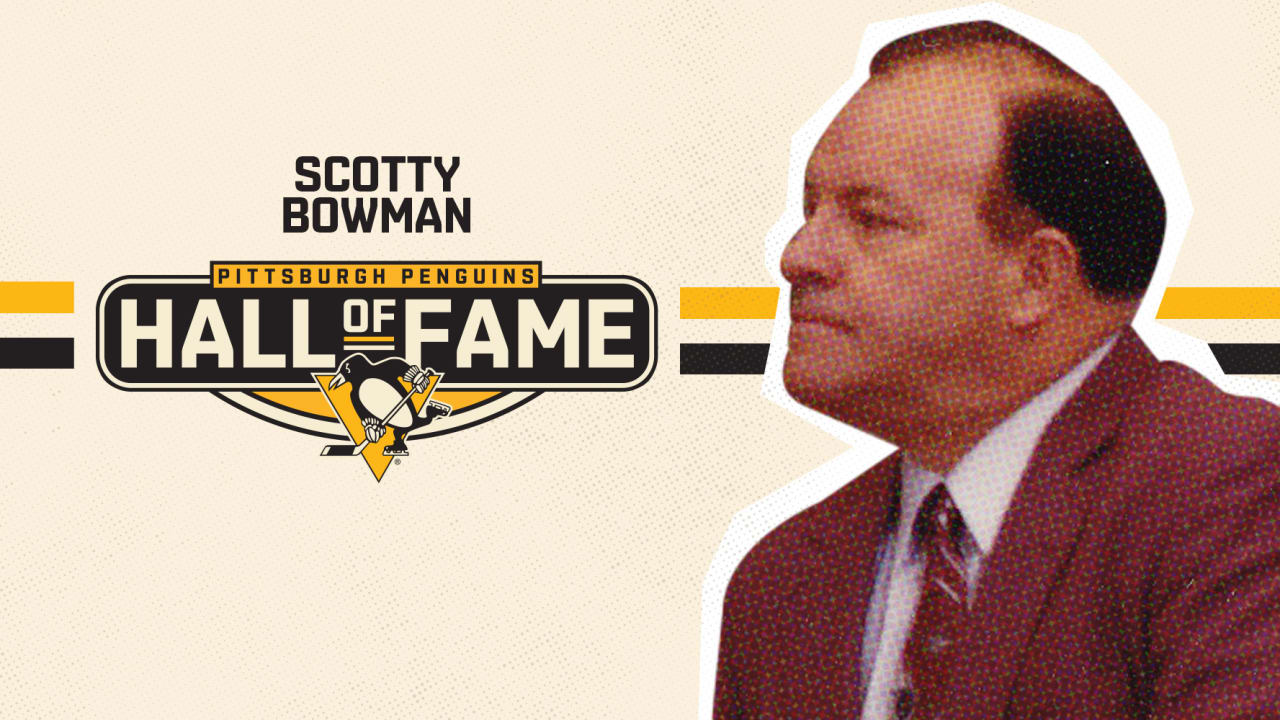After coaching the Montreal Canadiens to four straight Stanley Cups from 1976-79, Bowman joined the Buffalo Sabres as head coach and general manager. But doing both jobs became too much for Bowman, which led to him and the Sabres going their separate ways.
So, Bowman went into broadcasting for a couple of years before Craig Patrick reached out. Patrick let him know he had hired ‘Badger’ Bob Johnson as head coach, someone Bowman knew quite well.
“Then Craig said, ‘I would like to get somebody to help with the roster. You know, all the players and all that,’” Bowman recalled. “Then he said, ‘You won’t have to move.’ That was the appealing part of the job. My kids were still in high school. He said, ‘You’ll come in on different occasions, when we have meetings and all that.’ It’s not very far. It’s a little over three hours. It made for a good fit, and that’s the reason I got to Pittsburgh.”
Bowman played a huge role in helping Patrick transform Pittsburgh into back-to-back champs in his lone year on the personnel side. Among the players the Penguins acquired over the summer of ’90 and through the ’91 trade deadline: Ron Francis, Ulf Samuelsson, Joe Mullen, Larry Murphy, Bryan Trottier and Scott Young.
But it’s what Bowman did the following season that was extraordinary.
Johnson had led the Penguins to the first-ever Stanley Cup in franchise history during his first and only season with the team, beloved for his unflappable optimism and famous catchphrase, “It’s a great day for hockey!” But sadly, in August of 1991, Johnson was diagnosed with brain cancer.
When the Penguins learned of Johnson’s diagnosis, Patrick asked Bowman to step in as interim coach until they knew more.
“We wanted to keep that job open for Bob. Unfortunately, around Thanksgiving, Bob passed away,” Bowman said. “He had meant so much to the organization (with) what he did the year before. It came as a real shock to everybody because it happened so quickly… it was just terrible.”
While there was a lot of motivation for the players to win in Johnson’s honor, they were still grieving, and taking over was a huge challenge for Bowman. He decided the best course of action would be to make as few changes as possible.
“The team didn’t need to have somebody else coming in with anything different,” Bowman said. “By spending a lot of time with Bob, especially in the playoffs, I knew what kind of work that he wanted to get done as a coach. It wasn’t easy, but I followed the year before of how he ran practices, the travel. We kind of just tried to pick up and do the same things.”
But Bowman left his own stamp on that year’s run.
In the first round against the Capitals, the Penguins were having a lot of problems, with Bowman calling Washington’s offensive blue line nearly impossible to handle. A few of their defensemen were 20-goal scorers.
“We were in a shootout game with them… we didn’t want to change our group that was high-scoring, but at the same time, we were up against a team that had something that most teams didn’t have,” Bowman said. So, the coaching staff talked with Mario Lemieux about a mid-series shift to a neutral zone trap.
“Mario was always listening to everybody and telling us as much as he was listening,” Bowman said. “We said we were going to have to do a different style to beat this team. He said he’s willing to try it and he’s willing to really support it.”
In the next round, the Penguins overcame Lemieux’s broken hand to erase a 2-1 series deficit against the NHL’s best team, the New York Rangers.
But it’s Game 1 of the Stanley Cup Final that Bowman remembers most.
“We had home ice advantage but we were down in that game quite a bit late in the third period,” Bowman said. “Then, the great play by a young player, Jaromir Jagr, coming up and tying the game… and then them getting a penalty with very few seconds left and then Mario scoring the winning goal… I mean, we were up against a team that was on a roll. Game 1 was a memory that I’ll have, I can still see the goals going in in my mind.”
It was an amazing feeling for Bowman lifting the Stanley Cup for a fifth time a few days later. He went on to win three more championships with the Detroit Red Wings in 1997, 1998, and 2002. Bowman holds the record for most wins as a head coach in NHL history, and most Stanley Cups with nine.
And if it wasn’t for that fateful call from Craig Patrick, Bowman’s coaching career may never have taken off again.
“When I went to Pittsburgh, I wasn’t burnt out as a coach, but I had my fill of coaching and I didn’t think I’d ever have to coach again,” Bowman said. “Then all of a sudden when I got back to coaching, I kind of enjoyed it, because you always enjoy when you’re winning. And just the fact that when we won the second Cup, I was enabled to keep doing what I did most of my life… I said I’m going to concentrate on coaching, and that’s what happened.”
More information on the Penguins Hall of Fame can be found here.

